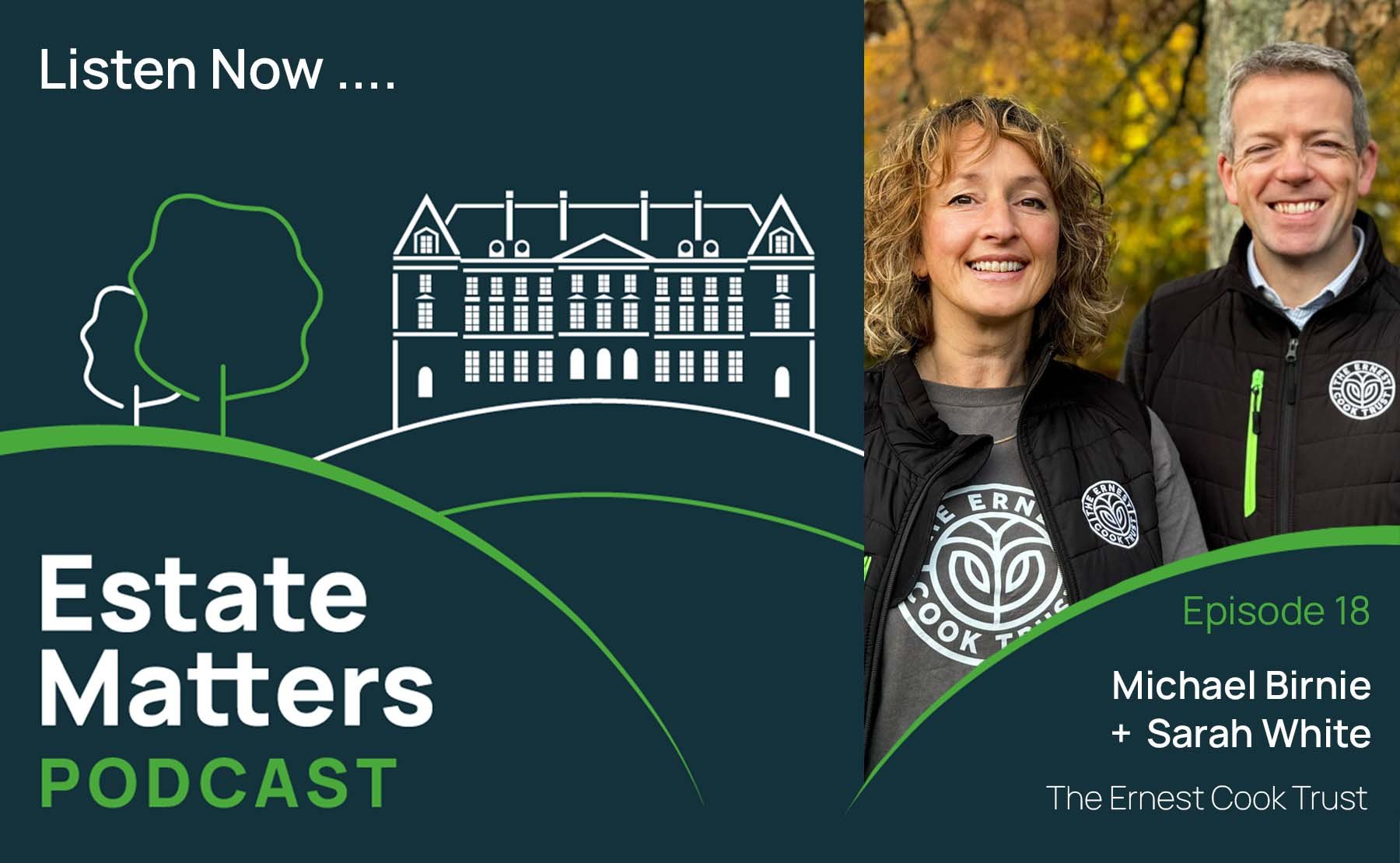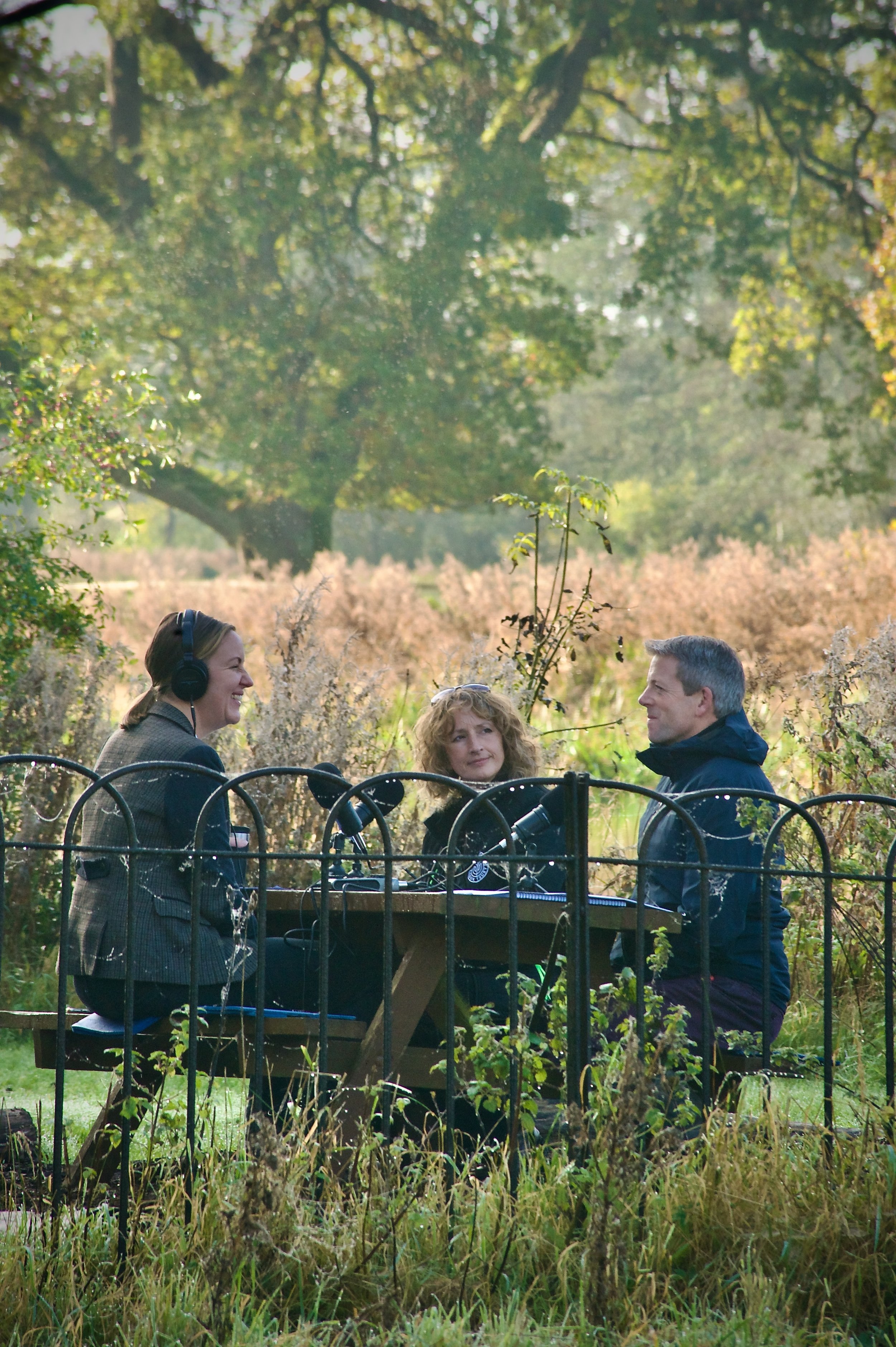Estate Matters Episode 18: Michael Birnie & Sarah White | The Ernest Cook Trust on the balance of funding charitable aims through land and property management
The management of the nine estates spread across England that make up the land holdings of The Ernest Cook Trust is carried out with a clear focus on the Trust’s primary purpose as an education-based charity.
It gives the Trust and its estates a unique place in the rural community, The Ernest Cook Trust’s Property Director Michael Birnie says - raising funds for its charitable causes and providing the farms, woods and other sites where children and young people can learn about the countryside.
Michael tells the latest episode of KOR Communications’ Estate Matters podcast that communicating clearly to stakeholders and estate neighbours what the Trust is all about can sometimes be challenging.
“As we are constantly evolving and changing, you’ve got to take people on that journey,” Michael tells podcast host Anna Byles. “That’s a constant piece of work that we have to be doing – talking about who we are, what we do and why we’re doing it - and we’re investing a lot of time and effort in being able to talk about that more easily.”
Michael and The Ernest Cook Trust’s Head of Learning Programmes Development Sarah White describe their work with insight and passion in the podcast, recorded at the Trust’s headquarters in rural Gloucestershire.
Ernest Cook, the founder of the Trust, was the grandson of Thomas Cook, one of the pioneers of holidays and travel. Ernest inherited his grandfather’s wealth and combined this good fortune with a passion for conserving the countryside, buying several country estates which were eventually bequeathed to The Ernest Cook Trust, the educational charity he established in 1952.
Significant funds were raised more recently through developing land on the edge of Aylesbury, with the creation of Fairford Leys during the 1990s and early 2000s. That income enabled the Trust to deliver more education, meaning children and young people who might not ordinarily get the opportunity to experience time in nature now get that chance. “It is really important to custodians of the countryside that they help provide people with opportunities to connect with nature and get outdoors,” Michael said.
That commitment to education in a rural setting drives the work of the Trust in managing estates for farm tenants, commercial tenants and residents. Profits are ploughed back into the charitable work and the estates themselves provide the sites where much of that education can take place.
Michael says: “We’re in the business of helping people who don’t get that opportunity to touch soil…to put on a pair of wellies. It is that simple. I have met with rooms of people who have never touched soil…When you see that you recognise the real need and the great satisfaction we get from giving people those opportunities – and that’s what we’re passionate about doing.”
In the last ten years the Trust has refocussed the organisation and responded to a growing demand to connect people and nature, across age groups. “We are looking at how we can support lots of different sectors in society to link with nature and the environment whilst caring for and managing these estates in a progressive way, because they do not stand still,” Michael says.
Measuring the positive impact of the education the Trust delivers is vital. “We are interested in delivering quantitative outcomes,” Sarah says. “In the end, if we want to sit at the table of policy change – which we do, in terms of education – it’s important that we can compare to national benchmarks and see how we’re doing.”
She admits, however, that some of the positive impacts of the educational work of the Trust are difficult to measure but can nevertheless be important for the future wellbeing of young people.
“We might never be able to capture that kernel of a moment in a wood - of awe and wonder of a child - that then, five years down the line, prompts a life-changing decision. I think we need to keep that in our hearts as well,” she says.
Both she and Michael agree that allowing a child to flourish is the key phrase which sums up the Trust’s educational work. That means, Sarah says, helping them connect with nature, helping them connect with themselves and helping them connect to others.
With nine estates stretching from Cumbia to Dorset, with a concentration in Gloucestershire and Leicestershire, running The Ernest Cook Trust can be logistically challenging, both Michael and Sarah accept.
There is a growing need for a greater connection between people and nature. With a unique focus on education and the land holdings and financial stability to provide the learning, the Trust has all the ingredients to help provide a solution to social and environmental challenges.
Michael says the core of the Trust is its ability to get people outdoors. “I think that has real value,” he adds. “It’s an opportunity for our farming businesses, it’s an opportunity for us … it really gets to the heart of what we do. I think we can knit all that together.”


